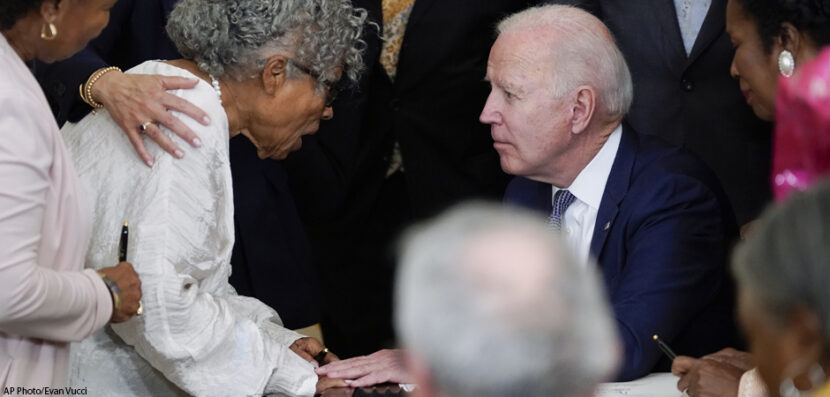
Juneteenth: A Federal Holiday
On June 19, 1865, news of the end of the Civil War reached the citizens of Galveston, Texas. This day, known as “Juneteenth,” is now a federal holiday. Here, Election Central takes a closer look at the history and significance of that important day.
What Is Juneteenth?
On June 19, 1865, federal troops arrived in Galveston, Texas, to take control of the state and ensure that all enslaved persons living there were freed. Slavery was still practiced in that part of Texas—even though the Civil War ended in April 1865. The arrival of federal troops on June 19 didn’t put an immediate end to slavery in Texas. In fact, some slaveholders waited until after that year’s harvest to obey the order. But in many places, celebrations broke out among the newly freed people. On June 19, 1866, a “Jubilee Day” celebration was organized in Texas that included music, prayer, barbecues, and other activities. Juneteenth has been celebrated as a local holiday ever since.
A New Holiday
The state of Texas recognized Juneteenth as an official state holiday in 1979. Since then, other states have done the same thing. In June 2021, Congress passed a resolution to make Juneteenth a federal holiday. The legislation received unanimous support in the Senate, and only 14 “no” votes (all by Republicans) in the House of Representatives. It was signed by President Biden on June 17, 2021.
One Woman’s Battle
Opal Lee, 94, is an activist who has been fighting for decades to make Juneteenth a national holiday. The great-granddaughter of an enslaved woman, Lee started this effort more than forty years ago by joining the Tarrant County Black Historical and Genealogical Society. This group oversaw local Juneteenth celebrations. But Lee wanted to make the holiday known on a larger scale. So, five years ago, at the age of 89, she began a walking campaign in various cities between her home in Texas and Washington, D.C. In many of the cities, she walked 2.5 miles in honor of the 2.5 years it took after the Emancipation Proclamation was signed for enslaved people in Texas to learn that they were free. Along the way, she collected signatures from 1.5 million Americans, requesting that Congress make the day a national holiday. Lee has since become known as the “Grandmother of Juneteenth.” She was present at the White House to witness the official signing of the legislation.


